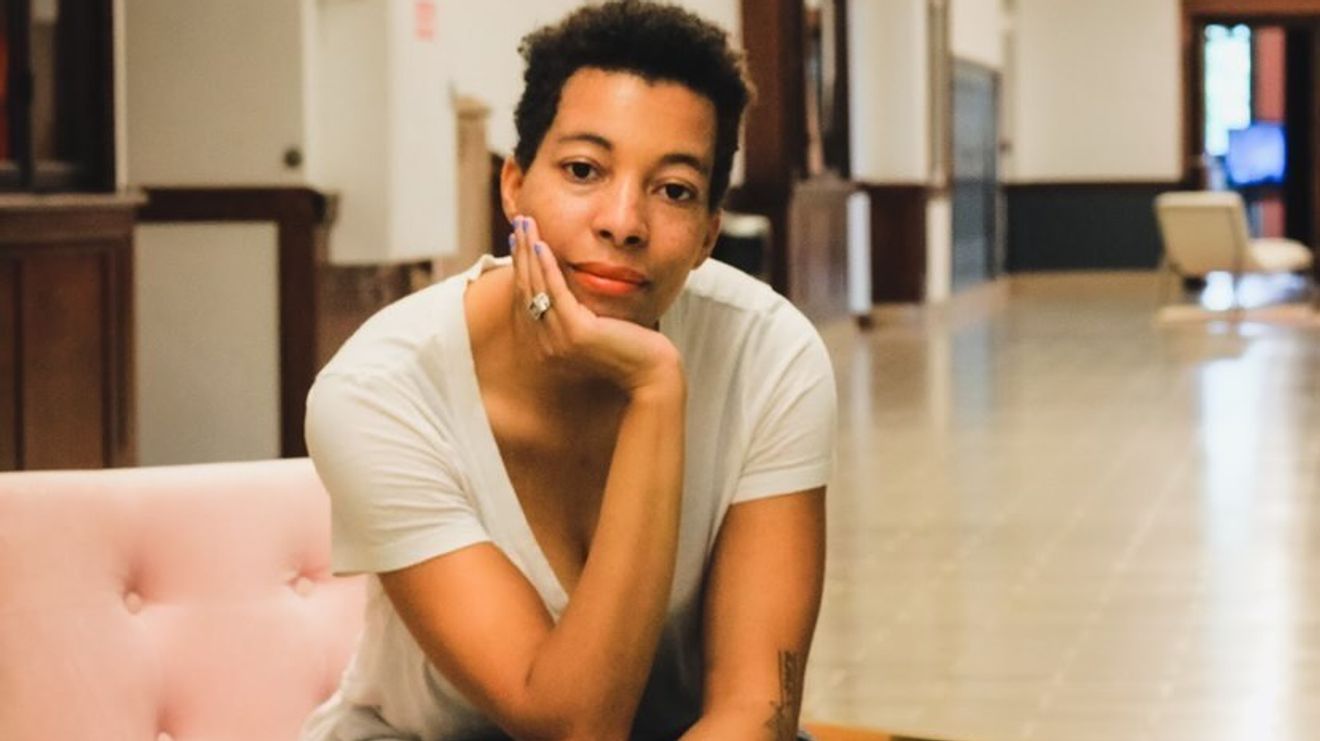It’s no secret that getting a job often depends on who you know.
Before the pandemic, many job-seekers attended costly conferences, luncheons and professional happy hours to broaden their chances at connecting with someone who miraculously holds the keys to their next job.
While some aim to replicate those experiences during the pandemic — grabbing coffee with someone over Zoom ZM, -1.65% or attending a virtual conference — it’s impossible to replicate the spontaneous conversation you strike with someone that can result in an exchange of business cards.
But the interactions users are having with one another on Clubhouse, an invite-only audio social-networking app, is giving face-to-face networking a run for its money.
Victor M. Parker II, joined Clubhouse in late November shortly after he was laid off from his public-relations role at Western Digital WDC, +7.21%. As soon as he joined his first Clubhouse room, a welcome room for new members, he told himself, “This is how I’m going to get a job.”
Parker has since lost track of how many job interviews he’s gotten, but one ultimately led to a job offer working for a PR firm, which he eventually decided to turn down.
“I’ve been able to name drop in every interview,” he said. “I’ve even had an interview recently where someone asked if they could be in the club and within 24 hours of the interview they were on stage with me speaking in my room.”

Victor M. Parker II, pictured, stated a PR and Communications on Clubhouse. Through the connections he’s formed with members he said he’s been able to “name drop in every [job] interview.”
Victor M. Parker II
What is Clubhouse?
The app, which currently is only available to iPhone AAPL, +1.07% users with the exception of those in China, where it is banned, launched nearly a year ago. It began as an exclusive platform for quarantined venture capitalists to rub shoulders with one another from their homes.
Like Facebook FB, +2.58%, Clubhouse is starting as “invite-only,” which gives it an air of exclusivity, as its name suggests. That is intended to create buzz around the app and an appetite among the public to become part of the conversation.
It’s hardly exclusive, however, judging by the current number of members. Clubhouse has 10 million weekly active users, Clubhouse Co-founders Paul Davison and Rohan Seth announced in a Clubhouse town hall last month.
Last May, the social network had 1,500 members, was valued at $100 million by Andreessen Horowitz and, at that time, did not have a public website.
At that time, CNBC reported that musician MC Hammer, political commentator Van Jones, writer Shaka Sengh, and venture capitalists Marc Andreessen and Ben Horowitz, participated in a conversation about how the COVID-19 pandemic was being felt among prison inmates.
“ In just about every room there are three tiers of people: Moderators, speakers and audience members. ”
Within the app, Clubhouse users can seamlessly hop from a chat room where people are sharing tips for how they’ve overcome anxiety as a creative professional to a silent networking room that implores users to explore one another’s in-app biographies to connect.
Other rooms taking place at the same time may feature doctors answering questions from audience members about COVID-19 vaccines, while another is a speed-dating group intended for single people to “shoot their shot” at another single person they find attractive in the room.
In just about every room there are three tiers of people: Moderators, speakers and audience members.
Moderators are typically the ones hosting the room. They are able to invite any audience member to speak and can move them back to the audience, where users are in listen-only mode, at any point.
Members of the audience can tap the “raise hand” emoji at any point if they want to speak, but must be approved by the moderators.
In addition to rooms, users can also start an interest-based group or “club”. Similar to a Facebook group where members can host events, club members can start a room for fellow members or open it up to anyone.
Before Friday, it was notoriously hard to get approved for a club and required a manual review process. Now most users can instantly launch a new club.
Using Clubhouse to get hired
Parker was shocked when his request to start a communication and public relations club was approved in early December, and he now has over 5,600 members and more than 17,000 followers.
As his club grew, rather than spend his time beefing up his LinkedIn profile and connecting with people through it, he decided he would use it as a way to network
Other club members have put him directly in touch with hiring managers at public-relations firms.
Then one night while he was leading a Clubhouse room from the comfort of his bed, he got a LinkedIn message from a Silicon Valley advertising executive he’s admired throughout his career saying “I found you!”
“I really love the things you’re doing with your club,” he continued. “Here are the jobs available at my company. Would you consider working for me?”
Walker did not end up pursuing the open roles because he’s only interested in in-house public relations jobs where he would be working with one company as opposed to a portfolio of clients.
‘We don’t want to sell out’
Every Saturday at 1:30 p.m. EST Soumeya Benghanem, Ade Itachi and Saba Karim host a room titled “Hiring Fair: Founders Pitch Open Roles to You”.
Benghanem, a New York City-based product management leader at VMware VMW, +3.47%, attracts mainly product managers to the room. Itachi, a San Francisco-based senior Netflix NFLX, +1.00% engineer, attracts designers. And Karim, a Denver, Colorado-based global startup pipeline manager of Techstars, a startup accelerator, helps attract startup founders.
Startup founders or hiring managers have 90 seconds to share information about their company, what problem they are solving and what positions they’re looking to fill.
Benghanem, Karim and Itachi, who started the weekly room early last month, will only invite people up to pitch a role if they include an email address in their bio so that prospective applicants can connect with them directly.
“ Startup founders or hiring managers have 90 seconds to share information about their company, what problem they are solving and what positions they’re looking to fill. ”
Benghanem said the weekly room is equally beneficial for early-stage startups as it is for job-seekers.
Early-stage startups have the opportunity to increase their visibility and raise brand awareness while also advertising their openings. That may enable them to spend more time working on their business as opposed to headhunting.
Benghanem, Karim and Itachi don’t receive any outside funding to host the weekly room.
But after hearing Amazon AMZN, +0.77% and T-Mobile TMUS, +5.12% employees pitch positions last week, Karim said they toyed with the idea of getting one of the two companies or another large corporation to sponsor the room. They joked about naming the sponsored room “Startup Hiring Fair Powered by T-Mobile.”
“But we don’t care enough about doing that and we don’t want to sell out,” Karim said.

Charlotte Clark, pictured, got a $750 consulting job through a connection she made on Clubhouse.
Charlotte Clark
What is it like to host a room?
On Feb. 28, this reporter co-hosted a Clubhouse room with Benghanem where dozens of Clubhouse users shared their success stories at getting hired or hiring through Clubhouse.
Charlotte Clark, a Kansas-City, Missouri-based product consultant who works primarily with startups, joined the room to share how she got a $750 consulting gig advising an algorithm-driven beauty product matching early-stage startup.
She’s also done more than 20 free-of-charge initial 30-minute consultations with potential clients who have found her through Clubhouse, she said.
In Clubhouse rooms, she frequently shares the challenges she had overcome since launching her solo consulting practice a year ago. That resonates well with startup founders, she said.
“I am showing them that I have credibility. I want people who listen to me to think, ‘She knows what she’s talking about — she’s built her business with the techniques she’s talking about,’” Clark, 29, told MarketWatch in an interview.
Christopher Mathews Jacob, 26, who is based in Malaysia, is also taking advantage of speaking in Clubhouse rooms to connect with people in the Malaysian broadcasting industry.
He currently works as a design engineer at Sony SNE, +2.26%, but his dream is to earn his entire living off of speaking engagements, be it hosting podcasts, appearing on television or growing his YouTube GOOG, +2.90% GOOGL, +3.10% channel.
Mathews Jacob received a direct message on Twitter TWTR, +0.30% last Friday inviting him to audition for a TV news show based in Malaysia after he asked a room filled with Mayalsian TV presenters if they had any auditions going on.
“Clubhouse has been like a drug for me during all the lockdowns,” he said during an interview with MarketWatch hosted on Clubhouse.

Christopher Mathews Jacob, pictured, is using Clubhouse to pivot into the broadcasting industry from the design engineering field he’s currently in.
Christopher Mathews Jacob
Moving beyond cover letters and resumes
There’s another side to why Clubhouse has become a hotbed for professional networking. Many recruiters and hiring managers are finding that traditional cover letters aren’t bringing in the best candidates.
Nearly half (46%) of job applicants falsify information or bend the truth on their cover letters and resumes, according to a 2017 survey of 1,000 U.S. adults conducted by OfficeTeam, a staffing firm.
It’s much harder to get away with lying about your skillset when you’re leading an engaging conversation with leaders in a given industry, said Alan Furley, a director and owner at ISL Recruitment, a Bristol, U.K.-based startup recruiting practice.
“ ‘One of the massive benefits of Clubhouse is you can actually hear the real person not a CV.’ ”
“One of the massive benefits of Clubhouse is you can actually hear the real person — not a CV that’s been written by somebody professionally or doesn’t showcase their true story.”
In the six weeks he’s been on the app, Furley said he’s constantly keeping an eye out for talent to fill roles he’s recruiting for.
On LinkedIn MSFT, +2.15%, he put together a guide for how hiring managers can fill roles using Clubhouse.
From a job seeker perspective, Clark, the a Kansas-City product consultant, recommends putting the most intriguing information about yourself in the first three lines of your profile biography because that’s all people will see when they first click.
She said Clubhouse is useful in the wider ecosystem of social-networking apps. Don’t be afraid to cold message people, Clark said, be it on Twitter, LinkedIn or even Instagram that you found interesting.
It’s also the thrill of the unexpected. Furley recommends keeping a consistent profile no matter what room you’re in that showcases your skillset because “you never know if you’re in a room that could end up leading to a hiring opportunity.”










